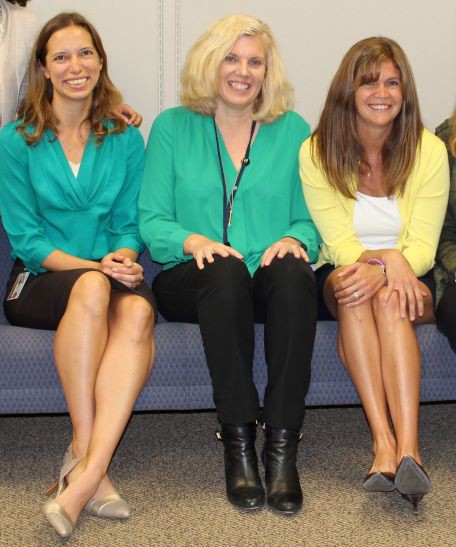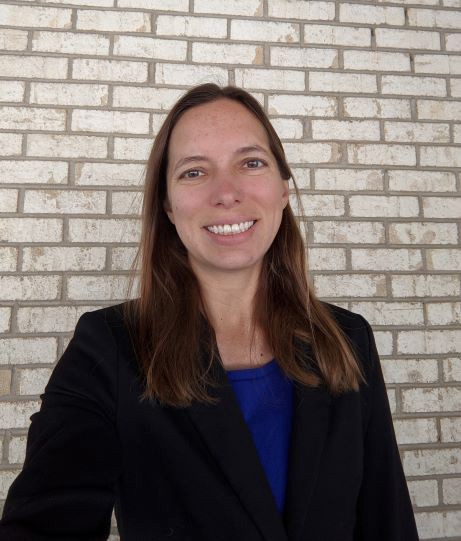 Contributing Author: Kristine Rolfes, Senior Deputy District Attorney, 18th Judicial District Attorney’s Office
Contributing Author: Kristine Rolfes, Senior Deputy District Attorney, 18th Judicial District Attorney’s Office
 Photo credit: Ketut Subiyanto/Pexels
Photo credit: Ketut Subiyanto/Pexels
I was pregnant with my second child, rushing to pick up my baby after a long day of prep work for an upcoming first-degree murder trial, when I realized I was exhausted and overwhelmed. I felt as though my work/life balance was seriously out of whack. I wasn’t the mother I wanted to be, I wasn’t the prosecutor I wanted to be. There just were not enough hours in the day to be the workaholic I had always been and still be a good mom.
All of my life, I worked hard at school and work. I finished my undergraduate in three years, while holding down a part-time job. I went straight to law school after undergrad and then went to work as a prosecutor at the same prosecution office where I did my law school clinic. That work only lasted a year before I was moving across the country to follow my then-fiancé, now-husband. I settled into life in a new state, studied for the Bar exam, and then got a job with one of the local prosecution offices. Right away, I was back to my old habits. I worked long past 5pm, sometimes leaving the office as late as 9 or 10pm. I took a box of files home to review every weekend, working long hours all weekend.
With my first child, I worked a week past my due date. I worked all day Friday and then went to the hospital on Monday to give birth to my overdue baby. At the hospital, I thought about work, about the sentencing hearing I was missing for a big case I had taken to trial just two months earlier. While I was in labor, I called my co-counsel to ask about the outcome of the sentencing hearing that occurred earlier that day. I took the entire 14 weeks of maternity leave that my office generously offered, though I was checking email and staying in contact with colleagues while I was out. I missed working and was excited to return to the office to dive back into work.
But when I returned to work, I found that my life had changed. I could no longer work until 7pm when I was in the midst of trial prep or wanted to call a witness after 5pm. I still loved my work prosecuting felony cases but I had to leave work promptly by 5pm to pick up my child from the trusted family member who cared for my baby during the day so that I could work. I could no longer work the entire weekend; I now had a child who craved my attention.
 Photo credit: Thirdman/Pexels
Photo credit: Thirdman/Pexels
I still frequently worked more than 40 hours, often logging hours at night or on weekends when my baby napped, and I still found the work to be intellectually fulfilling. I loved the time spent crafting legal arguments, responding to motions, trying cases, working with victims and witnesses, and meeting with colleagues. But something shifted for me when I became pregnant with my second child. My first child was taking fewer naps and was more alert and interactive. I was still handling a full felony caseload, including a homicide case that was set for trial. I had never-ending “to do” lists for work and for home that never seemed to get shorter. Every time I crossed something off the list, something new was added to it. On the days that I felt like an amazing prosecutor, I felt as though I was an absent mother.
I didn’t want to be a stay-at-home mother. I have plenty of stay-at-home mother friends. It is hard work to be at home with kids all the time and they are strong, amazing women. I was also struggling to be a mother who worked full time. I knew plenty of women who did it but some told me privately that they were exhausted and they felt they had missed out on precious moments with their children for the sake of work. Neither was the path that I wanted. I wanted to find a way to continue doing the work that fulfilled me while being the kind of mother that I wanted to be. I wanted to be able to be a mother who could take my toddler to the zoo on a Monday, who could volunteer in the classroom in the middle of the day, who could have a healthy home-cooked meal on the table every night for dinner, who could say “yes” when my child wanted me to come have lunch with them at school.
I want to acknowledge that I was incredibly lucky to have a choice. There are many parents in the world that don’t have a choice. They have to work fulltime to pay their bills, keep a roof over their heads, and put dinner on the table. My husband earned enough that I could choose to work part-time and, while money was tight (especially in the beginning), we were able to make the sacrifices to make it possible for our family.
I was also incredibly lucky that my office allowed part-time work. Part-time work is, even now, rare to find in a prosecutor’s office. I have known talented prosecutors who have left prosecution work because it did not afford any flexibility for other demands in their life. The work of a prosecutor is time-consuming and demanding, particularly when one is in trial. Two years before I decided to request a part-time position, there was a vacancy in our office. Two DAs left the office, creating open positions in the juvenile unit. The juvenile unit in that county was small, only two prosecutors worked in that unit; it was not a sought-after unit. Then, as now, most prosecutors aren’t particularly interested or passionate about working in juvenile law. The positions went unfilled for some time. Then two of my former colleagues, both of whom had left the office after having babies to seek more balance in their lives, returned to propose filling the open position in juvenile with a job share. They proposed a real job share, meaning together they would share the work and work a total of 40 hours. One would work 24 hours (3 days) per week, the other would work 16 hours (2 days) per week. They asked for benefits: paid time off (PTO), 401k, and health insurance. The elected DA worked with them to create the requested two part-time positions as salaried positions.
 Pictured: Kristine Rolfes, Deborah Wrenholt & Chelsea Koch
Pictured: Kristine Rolfes, Deborah Wrenholt & Chelsea Koch
There was skepticism from others within the office that the job share would work out. Those two women proved through their hard work and commitment to the work that the job share worked and they were highly successful as a team in juvenile. Prior to their job share in juvenile, the juvenile unit had been treated as a pass-through position. Nearly every DA was expected to spend approximately six months in juvenile after time in county court before moving on to felony cases in district court. By devoting themselves to a job share in juvenile court, those women became juvenile law experts and gained the flexibility they sought to have a work/life balance in their lives.
The volume of cases in that county’s juvenile unit justified the addition of a third part-time DA at the same time that I was in search of more work/life balance. I proposed and was granted a 60% position, meaning I worked 24 hours per week (3 full days) earning 60% of my full-time benefits (PTO and 401k) and the opportunity to carry insurance through the office (albeit at a higher cost because I was working fewer hours). We three part-time prosecutors shared all of the juvenile cases in the county (typically approximately 500 cases filed per year). We were able to be a fully vertical prosecution model, meaning we handled every stage of each juvenile case in our county from start to finish. We reviewed juvenile search warrants and orders for production of records, filed charges in all juvenile cases, appeared for all court dates, litigated motions, tried cases, and handled initial appeals. We made good notes in our files, held weekly staff meetings to discuss cases, and maintained consistency in handling cases (meaning a defense attorney would get the same offer on a case regardless of which of made the offer because we all handled cases in a consistent way).
In felony court, I had specific cases that were assigned only to me and I was solely responsible for handling them (including offers and trial). When I first came to the juvenile unit, I was worried about how it would work for all of us to handle all cases cooperatively. I have come to believe it was a benefit to us and to the juveniles in our courtroom. The three of us would have discussions about many cases, we learned from each other, and we acted as a balance for each other. Having a team of three part-time prosecutors, each with different life experiences, handle a variety of cases together made for more consistency in filing charges and making offers.
Part-time work has been beneficial for me, my family, and, I believe, for my office. I have been able to pick my kids up from school, serve as room parent in their classrooms, serve on the leadership team of their Girl Scout Troop, volunteer at their school, take them to the park, and generally spend quality time with my kids as they grow. I have also been able to cook healthy meals and maintain our household (doing the mundane chores like laundry and running errands like grocery shopping and dry cleaning). My office has benefited: I have gained and utilized expertise in juvenile law over the last 10 years; I have worked until the job is done (which can be more than the 24 hours per week); I have developed relationships with law enforcement, local schools, and local treatment providers that is useful in my daily work; I am available for phone calls and emails from colleagues or police (day or night). One benefit of employing three part-time DAs that I have noticed over the years is that the office received 3 full legal minds for a fraction of the cost. My job share partners and I have worked collaboratively and effectively shared cases and workloads over the last ten years.
I hope that more prosecutor offices will offer part-time work for prosecutors. Prosecution is a very rewarding but also very intense area of the law. I realize now that when I was working full-time, I was on track to burn out. Working part-time these last ten years has enabled me to continue to feel passionate and motivated by my work and allowed me to spend precious time with my growing family. I am grateful to have worked for three elected District Attorneys over the last 16 years who have placed their faith in part-time job shares. Offering part-time work helps prosecutors find work/life balance (essential in jobs filled with vicarious trauma); keeps prosecutors in the profession for longer, thereby reducing turnover; and attracts experienced attorneys who want to serve their communities while also having the flexibility that private firms are able to offer. I know some offices are hesitant to try new flexible job solutions but I would remind that the same talented, dedicated prosecutors who pursue justice for victims and communities will bring that same talent and dedication to part-time work if given the chance.
 Pictured: Kristine Rolfes
Pictured: Kristine Rolfes
View the original blog post here.